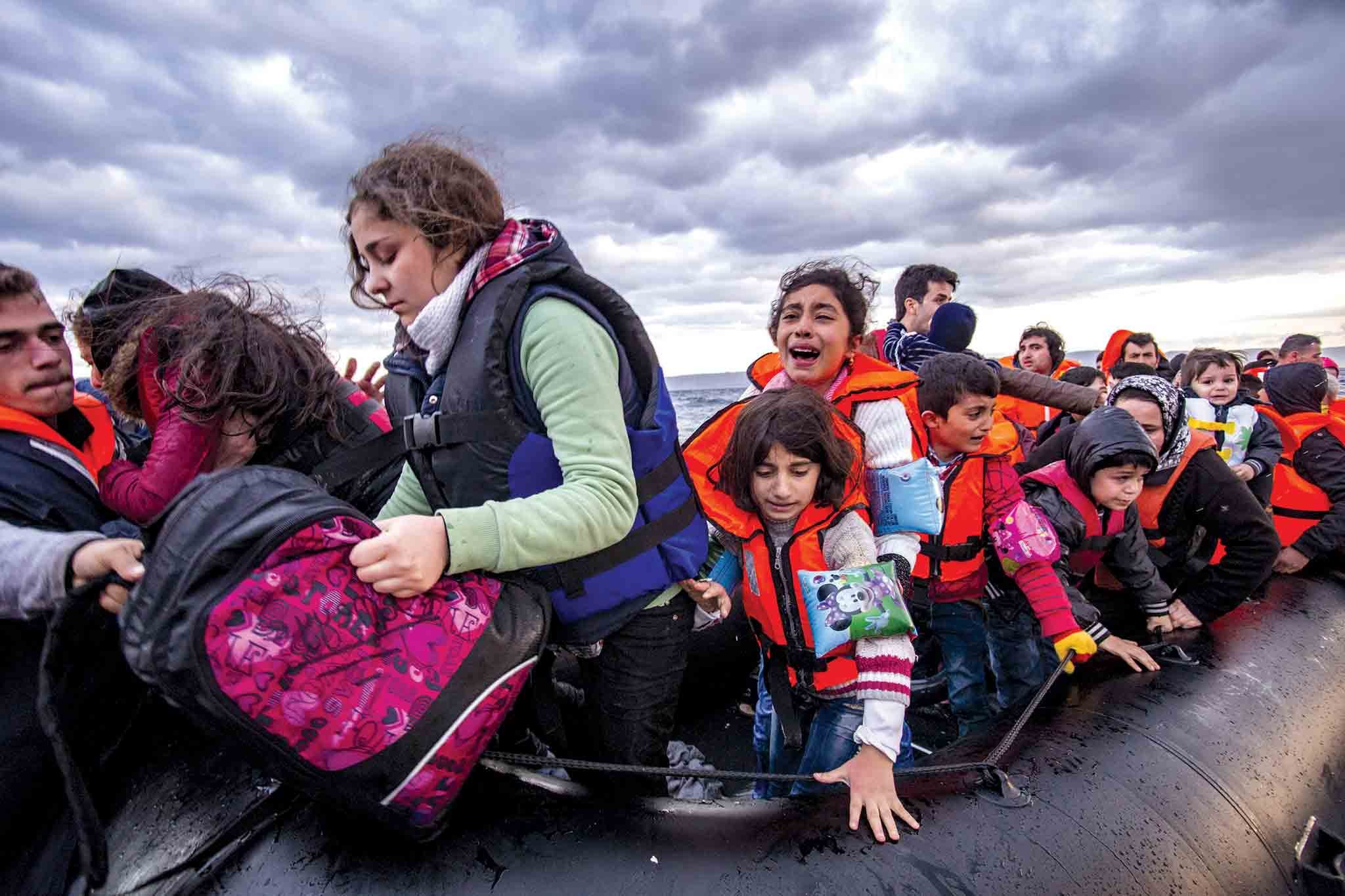
A new political landscape is emerging in Europe and the US, fostered by multiple insecurities and fears affecting the (potential) losers of globalisation. This new scene is enabling populists with protectionist, isolationist and anti-establishment policies to take power or to enhance their position in various countries.
Whether it is during election campaigns or in the run-up to a referendum, and regardless of country-specific contexts, migration is always one of, if not the key topic debated. Grounded on the rhetoric of ‘taking back control’, discussions on migration issues have mainly focused on the idea of limiting migration flows via a hardening of borders.
While Donald Trump’s victory demonstrates that the tendency to ‘retreat behind one’s borders’ exists not only in Europe, his presidency will have a direct impact on US foreign policy, and thus on migration flows, testing the way migration issues are currently being addressed in the EU.
Unknown impact of US foreign policies on refugee trends
President Trump’s approach to foreign policy is likely to have a direct impact on the EU, even though it is difficult to predict exactly what role the US will play. In any case, Washington’s position vis-à-vis NATO, the relationship with Putin, and US actions in the Middle East and Africa will play a pivotal role regarding refugee flows. The EU and its members as well as neighbouring third countries are likely to be the first to provide international protection if the situation does not improve or even worsen.
The unknown impact of Trump’s foreign policy choices requires the EU to urgently rethink its foreign policy and defence strategy. Based on a thorough and rapid analysis of possible scenarios in Europe’s neighbourhood, this will require a fundamental shift in policy orientations, priorities and means.
From increased border management to the widespread temptation of “walling the world”
Political tensions between member states and operational difficulties in dealing with the refugee crisis have narrowed discussions and orientations. The only fields where EU governments can find a consensus are, as seen in the September Bratislava Roadmap, border management and return policies.
The reintroduction of internal border controls; the creation of a European Border and Coast Guard to reinforce external border controls; negotiations on systematic controls on people entering the Schengen area, including EU citizens, on a “smart borders package” and the forthcoming proposal on the establishment of a ‘European ESTA’ (European Travel Information and Authorisation System, or ETIAS), illustrate this trend.
Trump’s victory and his proposal to build a wall between the US and Mexico may reinforce the current prevailing tendency in the EU and even revive the idea to ‘fence off’ the EU’s external or even internal borders, to create more of a ‘Fortress Europe’. The example of Hungarian Prime Minister Orban’s fence between Hungary and Serbia, in the context of growing fears of ‘mass migration’, might be a source of inspiration for other EU leaders.
The right to migrate under threat
The entire migration field is likely to undergo significant changes. This will concern first and foremost the increasing determination of member states to keep the stranglehold over admission policies (i.e. policies that determine who is entitled to enter and reside for whatever reason), which could potentially affect the free movement of people within the EU.
The right to family reunification may well be a target, while the right to asylum is likely to come under greater scrutiny. The right to seek asylum in the EU has already been undermined by the EU-Turkey deal. The Common European Asylum System is currently undergoing potential changes since the European Commission has tabled a series of proposals aimed to make EU asylum rules stricter. However, within an increasingly negative political climate towards migrants and refugees, the election of Donald Trump and his rhetoric against Muslims may incentivise EU leaders to call for even tougher policies vis-à-vis people seeking international protection.
This could lead to increasing support for the idea to process asylum claims directly in third countries, as recently proposed by the German Interior Minister. Moreover, and given that current refugee flows mainly come from countries with a predominant Muslim population, the abandonment of the protection mechanism set by the 1951 Geneva Convention on refugees’ status could also be on the cards.
This trend might intensify given the forthcoming general elections in some key EU states, such as France, Germany and the Netherlands. Right-wing populists parties are doing (very) well in all of these countries and the refugee/migration issue will certainly be central in the election campaign. As a result, the pressure on the right to asylum, as enshrined in Article 18 of the EU Charter of Fundamental Rights, may intensify.
Addressing fears and key questions
The US elections and developments in the EU illustrate the deep discontent of a significant segment of citizens, who feel overwhelmed by globalisation. EU leaders should thus pay greater attention to peoples’ desire to be protected from the negative consequences of an ever complex and rapidly changing world where migration and integration are growing concerns. While they have started to provide answers by tightening asylum policies and focusing on borders and security measures, more effort is needed to find a balance between recognising and addressing people’s fears, and ensuring that migration policies respect fundamental EU principles.
EU leaders need to explain the benefits of migration and counter fears based on misperceptions. The share of foreigners living in EU countries is less significant than what people usually think. Refugees and migrants are running for their lives and are not a security threat; terrorists are. Europe’s population is declining and having recourse to legal migration will help to counter the negative effects of demographic change. Presenting a counter-narrative based on facts is crucial and will help reduce irrational fears.
Leaders will have to launch a serious debate about Europe’s role and responsibilities vis-à-vis forced migration and third countries. Should the EU and member states fulfil their commitments to protect fundamental human rights, or should they abandon this approach for security reasons and externalise the migration challenge to third countries, irrespective of their standards regarding human rights? This discussion is fundamental for Europe’s identity and future.
Many Europeans still believe in the European project because it is based on fundamental core values. If the EU undermines its acquis for realpolitik reasons, it will lose those who still believe in the project and the values it stands for. This could mean the end of the EU as we know it.
*This article originally appeared on EPC.



